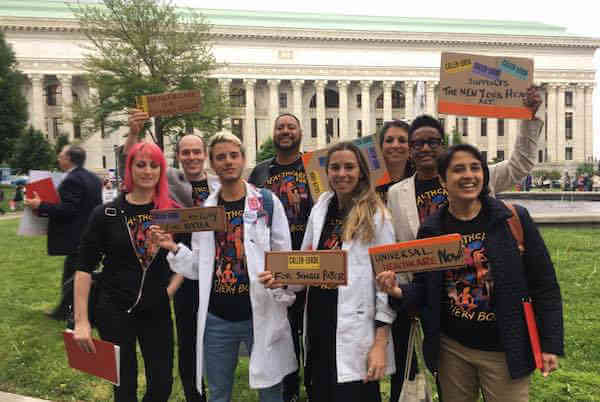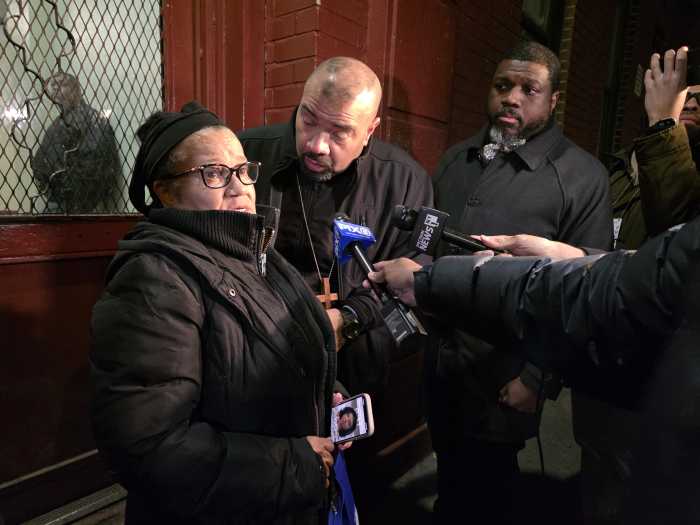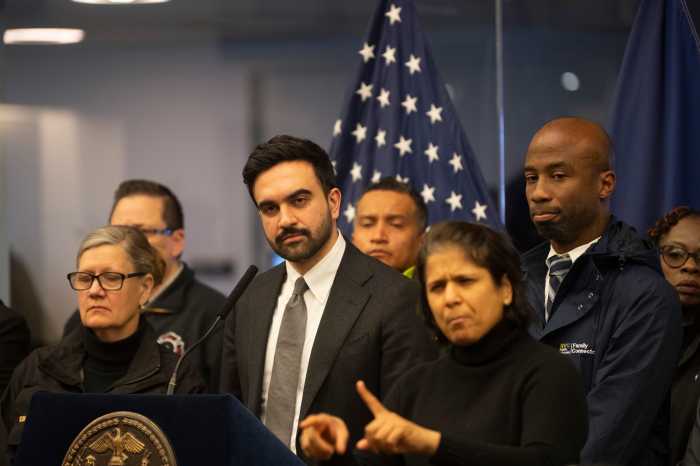Late on a Friday in the middle of Pride Month, the Trump administration finalized a long-anticipated rule wiping out protections in healthcare settings for transgender individuals.
The rule, which was first proposed in May of last year, specifically slashes a 2016 provision of the Affordable Care Act that included gender identity under the definition of sex discrimination. Under Obamacare, hospitals were required to offer health services equally to trans pople and women who have had an abortion, and those services were required to be covered by insurance.
The new rule, finalized on the fourth anniversary of the Pulse nightclub massacre and just days after two Black transgender women were murdered in Ohio and Pennsylvania, aims to give medical professionals leeway to refuse health services to trans people or to conduct operations on trans people seeking gender confirmation surgery.
The administration’s Department of Health and Human Services (HHS) said in a June 12 press release announcing the news that the agency will enforce Section 1557 of the Affordable Care Act “by returning to the government’s interpretation of sex discrimination “according to the plain meaning of the word ‘sex’ as male or female and as determined by biology.”
The administration is asserting that a rule issued by President Barack Obama in 2016 inserting the trans protections “exceeded the scope of authority delegated by Congress in Section 1557.”
“In 2016, the previous administration issued a regulation implementing Section 1557 (the 2016 Rule) that redefined sex discrimination to include termination of pregnancy and gender identity, which it defined as “one’s internal sense of gender, which may be male, female, neither, or a combination of male and female,’” HHS wrote in a press release.
While the rule’s finalization represented a new step in the administration’s attacks on transgender people in healthcare settings, President Donald Trump already moved in this direction earlier in his presidency. The Trump team sided with Franciscan Health, a Christian healthcare system that includes 14 hospitals in Indiana and Illinois, when Franciscan challenged the Obama administration rule in federal district court in Northern Texas. That court is home to conservative Judge Reed O’Connor, who already struck down Obamacare as unconstitutional late in 2018.
“The United States has returned to its longstanding position that the term ‘sex’ in Title VII does not refer to gender identity, and there is no reason why Section 1557, which incorporates Title IX’s analogous prohibition on ‘sex’ discrimination, should be treated differently,” the Trump administration said last year in response to the Franciscan suit.
The Obama administration had in a variety of other contexts also included discrimination on the basis of sexual orientation in prohibitions on sex discrimination, but that interpretation never made its way into Section 1557 — something that was likely an accident of timing. Trump won the 2016 presidential election and ushered in an era of dramatic queer rights rollbacks; a Hillary Clinton administration would undoubtedly have continued the Obama posture of broadening the definition of sex discrimination across federal regulations and policies. Under 1557 as it was written, some gay and lesbian folks could still have made the argument that they faced discrimination due to sex stereotyping, such as the case of a doctor refusing to care for an effeminate man, but that protection is far more limited in scope.
Among Trump’s other actions targeting queer rights in healthcare, the administration issued the final version of a rule last year giving health care workers and institutions the ability to refuse to care for patients on “religious” or “moral” grounds.
Queer groups immediately responded to the rule’s finalization with vows to sue the administration, including the Human Rights Campaign and Lambda Legal. Lambda Legal and GLBTQ Legal Advocates and Defenders (GLAD) both described the rule as one that would cause confusion in healthcare settings.
“The Trump administration has enshrined its discriminatory interpretation into the HHS rule book but that does not — and cannot — actually change the law,” Sasha Buchert, senior attorney and co-director of Lambda Legal’s Transgender Rights Project, said in a written statement. “However, this is enough to cause confusion and hurt our communities, especially transgender people and people of color who already face elevated rates of discrimination in health care settings. This rule change serves no other purpose than to target and discriminate against LGBTQ people. The cruelty is the point.”
Trump has consistently sought to chip away at queer rights in broad fashion, banning transgender service members from the military, slashing LGBTQ protections in schools and homeless and domestic violence shelters, gutting Title IX protections that benefitted transgender student-athletes, allowing foster care programs to reject same-sex prospective parents, cutting HIV/ AIDS funding, and more.
Trump also opposes the Equality Act, which would amend the 1964 Civil Rights Act and related federal laws to outlaw discrimination on the basis of sexual orientation and gender identity in housing, employment, public education, public accommodations, federal funding, credit, and in the jury system.
Within the next two weeks, the Supreme Court is expected to issue decisions in three cases regarding whether Title VII employment nondiscrimination provisions of the ‘64 Act cover sexual orientation and gender identity. Other nondsicrimination provisions of federal law typically follow the precedents of Title VII protections, so those rulings are expected to have sweeping implications.
To sign up for the Gay City News email newsletter, visit gaycitynews.com/newsletter.





































